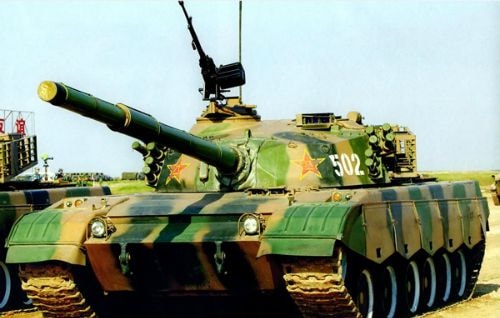Debate over China's failure at Russian military competition
Defeated in many events of the international military competition, China accused host country Russia of cheating, while Moscow responded that the reason was because Beijing wanted to be "different".
 |
| China brought its own Type 96A tank, instead of using the equipment provided by host country Russia, to the military competition. Photo: Military-today |
Less than three weeks ago, China participated in the world's largest military competition, the International Military Olympics, at the Alabino training ground outside Moscow. The event had 17 participating countries competing in various categories.
While most Americans were absorbed in Donald Trump’s presidential campaign and Tom Brady’s lawsuit, tens of millions of Chinese military enthusiasts and senior military commanders were focused on the Moscow competition. China Central TV closely monitored all 14 events of the event. Soldiers and countless military fans were glued to their TVs to watch the broadcast. Chinese military commentators raced to dissect every aspect of the competition.
In the end, Russia defeated China in most of the 12 events that China participated in, including tank racing (Tank Biathlon), submarine and warship racing (Caspian Cup) and infantry fighting vehicle racing (Suvorov Onslaught). During the competition, Russian military commentators repeatedly criticized the performance of Chinese weapons and equipment.
However, China accused Russia of cheating. General Liu Ying, head of the Chinese team, and many military commentators complained that the host country, Russia, repeatedly changed the rules of the competition to deliberately disadvantage the Chinese team. Meanwhile, the Russians said that China's complaints were unreasonable and that the accusations were intended to cover up the shortcomings and shortcomings of the Chinese team.
Russia says China failed because it tried to be different from other countries. Of the 17 participating teams, including Russia, China, Angola, Armenia, Venezuela, India, Kazakhstan, Kyrgyzstan, Kuwait, Mongolia, Nicaragua, Serbia and Tajikistan, China was the only country that refused to use the weapons and equipment provided by the host country, Russia. Instead, China used its own tanks, armored vehicles, guns and ammunition. Analysts say this shows that China wants to show the world that its weapons are as modern and superior as those of Russia.
Ultimately, the Russians had to adjust the rules of the competition to ensure that Chinese weapons, often newer and heavier, could compete fairly with the same-standard weapons that Russia supplies to other countries.
China accuses Russia of having “ulterior motives” in requiring participants to use Russian weapons, especially the T-72B3M and T-72B3 main battle tanks, in order to boost sales on the global arms market. Of course, China also clearly wants to sell its tanks to the global market, which is why it brought the Type 96A tank. This type of tank is more technically advanced and has a much larger engine.
In last year's competition, a Type 96A tank embarrassed the Chinese team when its tracks slipped while running across the podium towards the finish line, causing China to lose second place to Armenia.
This week's parade in Beijing commemorating the end of World War II in Asia will be China's chance to make the world forget its failure at the competition, showcasing its latest high-tech weapons from ballistic missiles to carrier-based fighter jets.
According to Washington Times/VNE
| RELATED NEWS |
|---|






